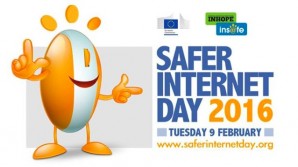





Internet is an environment particularly useful given that, than it was in the early days, it has become more collaborative and it allows everyone to be both users and producers of content. Of course, it should be used with due caution in order to draw the best and yes you can avoid all hazards that are hidden in it (and not just speak of Deep Web: for this reason, in the
First of all, when you are surfing, it’s good to assess what you have to do and where you do it. If you need to communicate personal data, operate economic transactions, registering on online services, it is good check that the site adopts the protocol HTTPS encryption with its padlocked icon. and speaking of with navigation safety, experts also advise to be careful when you connect to public WiFi networks and computers shared (eg. in the internet café): the chances that their data is not safe are high and, therefore, you should not be “too open” and, above all, to log out and a cleaning after each use of the web .
safety, of course, must be at the account when you shop online , in which case you may want to check the actual details of the store online ( VAT number, telephone, physical address, etc.) and feedback he has received. Also do not forget, to make a comparison to see if a particular price is in line with the market or not: too beautiful occasions, often are not true and nascondon scams.
spam is another scourge of the web: in similar predicaments, when you receive junk mail, better to censor immediately . Certainly not want to click on any of the links contained in it: they infect the computer or, in the best case scenario, it would communicate its presence to external hackers.
of course, the danger of computer infections is avoided consistently if you take appropriate preventive countermeasures . In particular a security solution for every purpose, even on mobile devices must have installed: antivirus against malware, antispyware against advertising, a firewall against hacker intrusions, against those who want a antikeylogger record what we type. One of the most popular recommendations from software house above is to Always update the software that you use in order to plug any loopholes that could be used by hackers: Always download the latest drivers, programs, and be sure to update the operating system! The downloads, also, be made always and only from the official, and never by any invasive or annoying pop-up sites that do pararvisi front during the navigation: this brings with it the fact that, in case of mobile terminals, app should always be downloaded from “reliable sources” , or by the official app store (never alternative ones).
router safely be put , perhaps changing the default passwords provided for access, by its manufacturer. If we talk about passwords, the chapter is long and perilous. Suffice it to remember that you should avoid trivial passwords ( “password”, 123456), too related to reality (eg. Star Wars), or easily predictable. Better to take a long string of alphanumeric characters avoiding the progressive succession of letters (uppercase and lowercase) and numbers: yes, if possible, special characters. Never use the same password for multiple accounts, remember to change it often and always expect possibility of credential recovery.
No less important it is to implement physical security of the terminals: computer access, return from the stand-by, should always be protected with the lock and a password prompt while mobile terminals would better to take off the Bluetooth, GPS and Wireless when absolutely necessary (make us identifiable).
In social sphere , security experts recommend that you pay attention to the personal information you share and the people who are admitted in their social networks: not all are friends!
And young ? Experts advise against them a watch to climb : high when they are small, maybe even with parental control programs, and less as they grow (han right to privacy), provided you have taught them what are the right to behave in the network and with the technology. Very important, finally, it is also the check the services used by their babies, preferring the less thirsty for personal information
These are the recommendations of the experts on computer security on the day of the Safer Internet day 2016: you can think of others and which you will adopt the ones just mentioned?







No comments:
Post a Comment